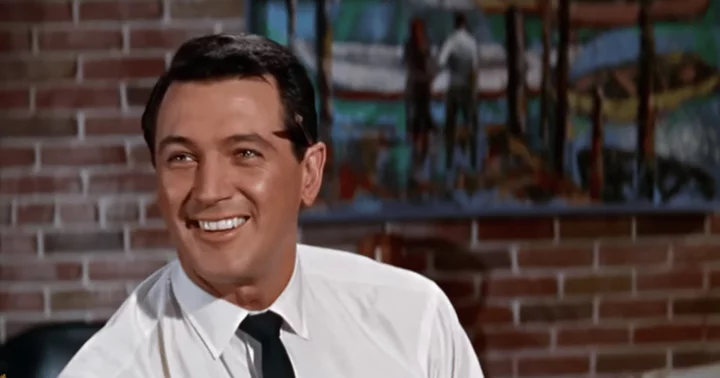LOS ANGELES, CALIFORNIA: Rock Hudson, originally known as Roy Harold Scherer, Jr. and later Roy Fitzgerald, He was among the first prominent Hollywood figures to succumb to complications stemming from AIDS on October 2, 1985.
Celebrated for his handsome appearance and his roles in films from the 1950s and 1960s, Hudson also received acclaim for a popular TV series 'McMillan & Wife' in the 1970s.
He never won any big awards, though he was once nominated for an Oscar. What he did have, however, was a rock solid fan base that adored him, making most of his projects a hit.
Which movie made Rock Hudson a star?
Hudson's portrayal of a reformed rogue who wholeheartedly commits himself to the woman he unintentionally blinded in Douglas Sirk's emotional drama 'Magnificent Obsession' (1954) was the turning point that launched him into stardom.
Which role is regarded as Hudson's 'career best'?
Hudson is most acclaimed for his portrayal of a sincere, traditional Texas cattle magnate in 'Giant' (1956), a role that earned him an Academy Award nomination. As the 1950s drew to a close, Hudson had risen to become one of Hollywood's leading and financially successful male actors.
Becoming Rock Hudson
After serving in the US Navy during World War II, Roy Fitzgerald embarked on his journey to Hollywood in 1946, harboring aspirations of becoming an actor.
Despite initially working as a truck driver, he dedicated his spare time to hanging around studio gates and dispatching his photographs to various producers.
It was in 1947 that talent scout Henry Willson recognized his potential and crafted a new identity for his protegé: Rock Hudson.
This name, blending "Rock" inspired by the Rock of Gibraltar and "Hudson" from the Hudson River, marked the beginning of his Hollywood transformation.
Despite facing numerous initial setbacks due to a lack of formal acting training, Hudson managed to secure a contract with Warner Brothers and made his film debut in 'Fighter Squadron' (1948).
A year later, Universal Pictures acquired his contract, providing him with essential acting lessons.
Rising star at Universal Pictures
At Universal Pictures, Hudson's career gradually ascended. He moved from minor roles to major parts in a series of westerns and adventure films, starring in a total of 28 films in just six years.
His breakthrough came in Douglas Sirk's poignant drama 'Magnificent Obsession' (1954), where he portrayed a remorseful rogue who wholeheartedly dedicates himself to the woman he had once accidentally blinded.
This role firmly established Hudson as a star, setting the stage for him to play compassionate protagonists in several more of Sirk's melodramas and stylized "women's pictures," including 'All That Heaven Allows' (1955) and 'Written on the Wind' (1956).
However, it was his portrayal of an earnest Texas cattle baron in 'Giant' (1956) that is widely regarded as his best performance, earning him an Academy Award nomination.
By the close of the 1950s, Hudson was Hollywood's most commercially successful leading men.
What year did Rock Hudson announce he had AIDS?
At the age of 59, Hudson passed away due to complications associated with AIDS. He was recognized for his role in raising public awareness of the severe impact of this illness.
The actor suffered a sudden collapse in the lobby of a Paris hotel, having traveled there in a final, desperate attempt to seek medical care.
Pictures of the ailing Hudson alongside the cheerful and still lively Doris Day quickly spread worldwide once it became public knowledge that the iconic symbol of 1950s masculinity had contracted AIDS.
At the time, media's AIDS reportage stated that the condition was “most prevalent among homosexual men and intravenous drug users.”
A representative for the star officially confirmed his illness on July 25, 1985. He had been diagnosed with the disease a year earlier on June 5, 1984.
“There was something about Hudson’s diagnosis that seemed to strike an archetypal chord in the American consciousness. For decades, Hudson had been among the handful of screen actors who personified wholesome American masculinity; now, in one stroke, he was revealed as both gay and suffering from the affliction of pariahs,” the late Randy Shilts wrote in his best-selling chronicle of the crisis, 'And the Band Played On'.
“Doctors involved in AIDS research called the Hudson announcement the single most important event in the history of the epidemic, and few knowledgeable people argued.”









